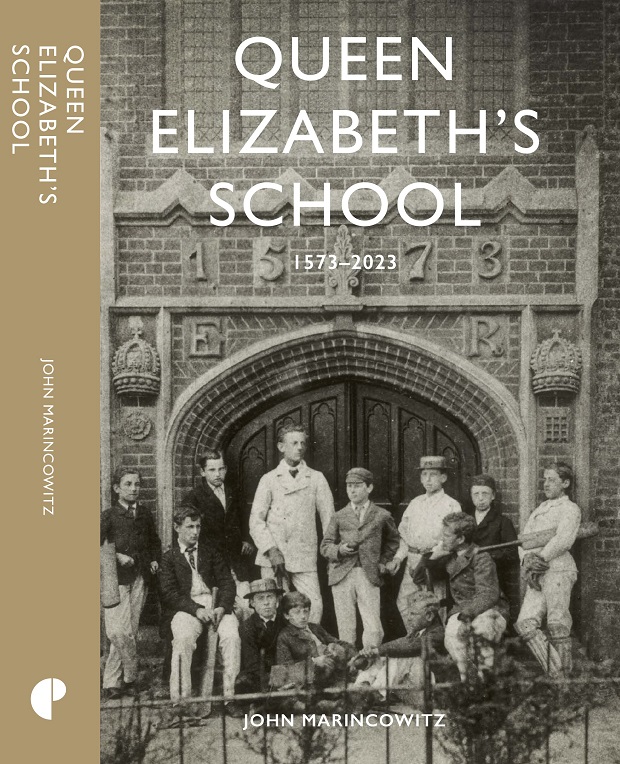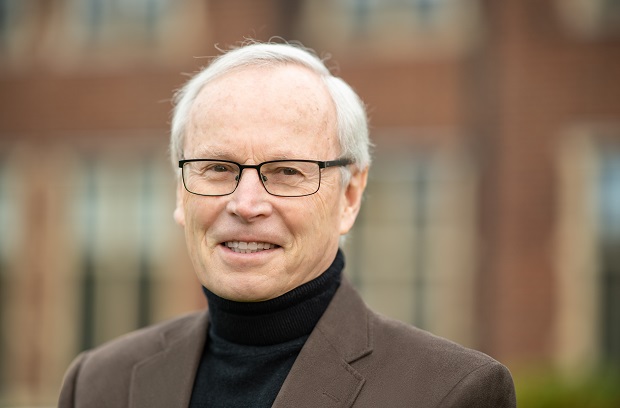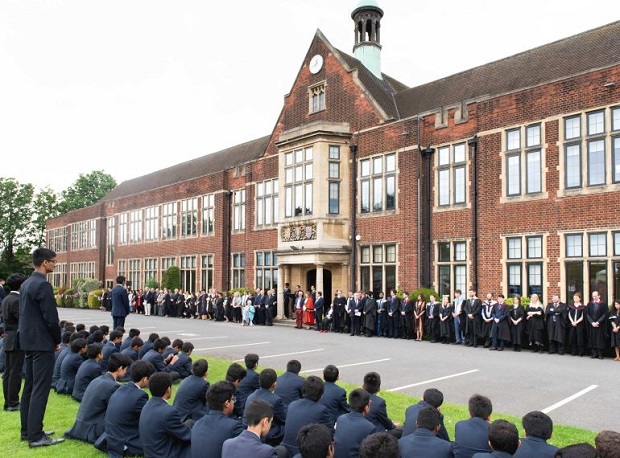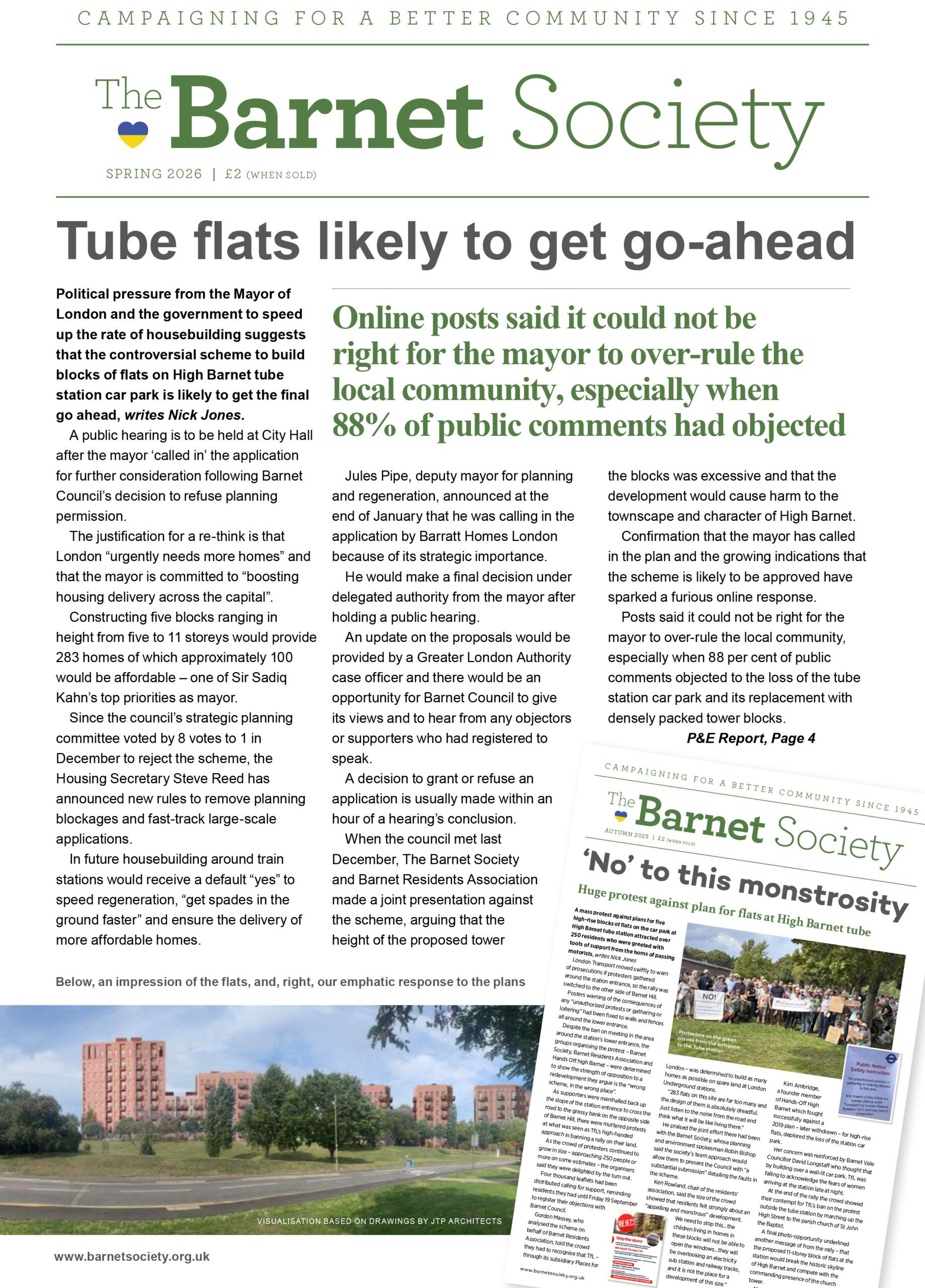New book to be published on 450-year history of High Barnet’s historic grammar school

A new book exploring the history of Queen Elizabeth’s School — or QE Boys as it is affectionately known — is to be published in March next year.
Its publication will celebrate the 450th anniversary of the founding in 1573 of a “free grammar school of Queen Elizabeth” for “the instruction of boys and youth of our town of Barnet”.
Former headmaster Dr John Marincowitz spent ten years researching what he says is the “vivid and twisting story” of a “small market town grammar” through its struggles and successes to become “one of the country’s foremost schools of today”.
Queen Elizabeth’s School, Barnet: 1573-2023 will be launched at an evening event at the school on Wednesday 1 March 2023, where there will be readings from the book and a question-and-answer session with the author.
There is an open invitation to former pupils, residents and others interested in the school and its history to attend the launch which will be held in the school’s recently opened Friends’ Recital Hall.
Free tickets for the event are already available through the Eventbrite booking website:
Dr Marincowitz, in his role as a historian of Queen Elizabeth’s, has worked through masses of archival records held by the school.
There will be an opportunity at the book launch for visitors to view some of the historic archive material drawn from over 6,500 historical sources which are already available to see on the QE Collections website: https://www.qecollections.co.uk/

Dr Marincowitz, who was headmaster from 1999 to 2011, hopes readers will find that his book provides a compelling account of what it was like to be at school in England over the last 450 years.
Along the way, from its founding by royal charter, the school had to weather repeated crises and challenges and it was “sometimes inconceivable that it even survived at all”.
“Throughout the school’s existence, the demands of the local Barnet community combined with wider societal changes have dictated its fortunes.”
When he became head, he said his challenge was to take the school “from excellence to eminence”. He strengthened its reputation, achieving by 2011 a fifth successive “outstanding” rating from Ofsted and topping national league tables for achievement.
Dr Marincowitz succeeded the late Eamonn Harris, who was headmaster from 1984 to 1999, when the school went through a period of dramatic change.
Soon after his appointment, Mr Harris learned that Queen Elizabeth’s Boys’ School – as it was then known – was deemed to be a failing comprehensive and was being proposed for closure by Barnet Council.
He was determined that QE won control of its own finances and admissions and fought “tenaciously” to take advantage of new freedoms for schools.
In 1989, QE gained grant-maintained status, “wresting its funding from the council”, and in 1994, it won the right to apply a selective admissions policy once again.
This was the turning point for the school: its admissions system reverted to a grammar school entrance test at 11-plus.
Its selection process attracts around 2,000 boys a year who sit an entrance exam for 180 places.
This change set the boys schools apart from Barnet’s Queen Elizabeth’s Girls’ School, which shares the same historic foundation and also has an annual intake of 180 pupils, but which continues as a non-selective comprehensive.

Queen Elizabeth’s School – (see above, Founders Day celebration, 2019) — attracts applications from boys across London and the Home Counties whereas QE Girls’, which is just a few streets away, serves a local catchment area which includes those homes within three miles of the school.
Parents living in and around High Barnet cannot fail to be aware of the divergence in the approach of the two schools.
An extremely high proportion of pupils at QE Girls’ walk to school or are a short bus ride away. Frequently they can be seen walking through the town, to and from school, together with their friends.
By contrast most of the Queen Elizabeth’s boys have to travel a far greater distance from homes in London and the home counties. They arrive – and depart – in half a dozen coaches and numerous minibuses and private cars.
Queen Elizabeth’s current headmaster, Neil Enright, who followed Dr Marincowitz in 2011, is proud of an intake of boys from all over London – “from Greenford, Ealing, Hayes, and towards Heathrow…some travelling the length of the Northern line or from Essex or Hertfordshire.”
In an interview with The Independent in 2015 he defended an entrance test and admissions policy that no longer drew pupils solely from what he described as the “immediate affluent area” of the school’s original catchment area around High Barnet.
Ninety per cent of its 1,200 pupils were from ethnic minority groups, including many from Asian, Chinese, or Afro-Caribbean origins, and he considered this was “a reflection of the make-up of the north-west London community”.
Both schools have a record of academic excellence.
In this year’s summer exams, seven in 10 of all A-levels at the boys’ school were achieved with A* and in December 2021 Queen Elizabeth’s was rated top in the Sunday Times’ parent power ranking for selective grammar schools and was its top state secondary school of the year.
In the last few years QE Girls has regularly been ranked by the Department of Education as being among the top secondary schools in the country.
It is 90 years since the publication of the last full history of QE Boys by Cecil Tripp which was supplemented in 1972 by Ernest Jenkins’ account of his headmastership from1930-61.
Dr Marincowitz’s book will follow publication in 2013 of the history of QE Girls – A School of Our Own – by Vivienne Bell, archivist at the girls’ school.
She welcomed the new history of the boys’ school which she was sure would make an important contribution to understanding the long history of education in the area.
The imminent publication of a new history of the school, is welcomed by headmaster Neil Enright.
“Queen Elizabeth’s is proud to belong to our local community of Barnet and we are looking forward to welcoming anyone with an interest in local history or the history of education at this special event.”

